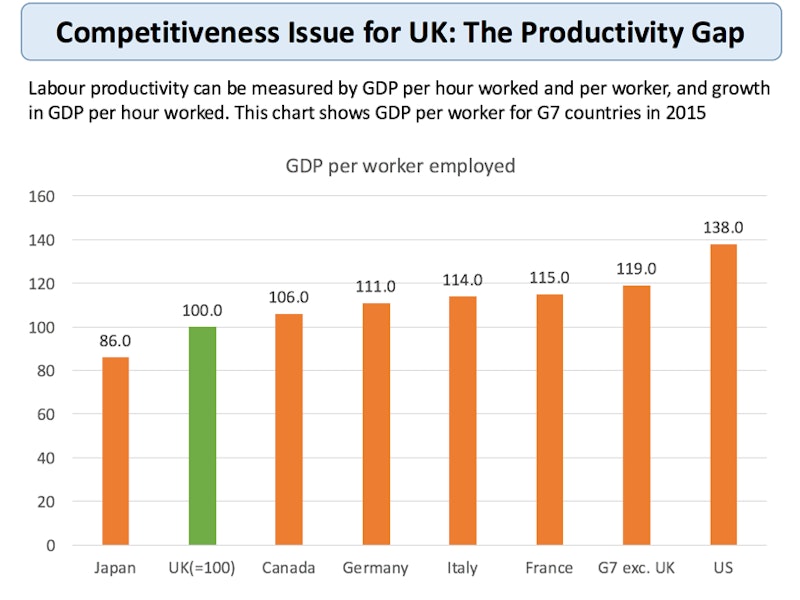Study Notes
Competitiveness and Human Capital
- Level:
- AS, A-Level, IB
- Board:
- AQA, Edexcel, OCR, IB, Eduqas, WJEC
Last updated 21 Mar 2021
Why is the quality of human capital so important in determining the competitiveness of an economy?
According to a 2015 IMF report, "returns to research and development and subsequent innovation depend critically on the human capital base of countries, which determines their capacity to recognize, assimilate, and apply new technologies."
Human capital refers to the value of skills, experience, aptitudes and attitudes of the human factor of production labour.
Policies to improve human capital might focus on some of the following:
- Skills e.g workplace training to increase people’s occupational mobility
- Enterprise e.g. Programs for start-ups such as Start-Up Chile, Young Innovative Companies in France, Entrepreneurship First (UK)
- Mobility: Housing market reforms to improve affordability and geographical mobility
- STEM: Investment in improved access to and quality of teaching in STEM subjects (Science, Technology, Economics!, Engineering and Maths)
Many businesses in the UK complain of shortages of skilled workers as a factor holding them back. Britain is ranked highly in the world for the flexibility of their labour market. But in 2015, Britain was ranked only 43rd of 144 countries for the quality / attainment of Science and Maths graduates.
Weaknesses in human capital is likely to be one factor behind the persistent UK productivity gap with many other leading countries.

You might also like
Economic Growth (Revision Presentation)
Teaching PowerPoints

Growing fast and growing slow - an anatomy of economic growth
18th February 2015
Supply-Side Issues for the UK Economy
Study Notes
Productivity Growth and Human Development
Study Notes
Occupational Immobility (Labour Markets)
Topic Videos

51st thing that made the modern economy
25th September 2017
EdExcel Theme 3 Micro Knowledge Book - Labour Markets
Quizzes & Activities
Building resilience to overcome external shocks
12th November 2019